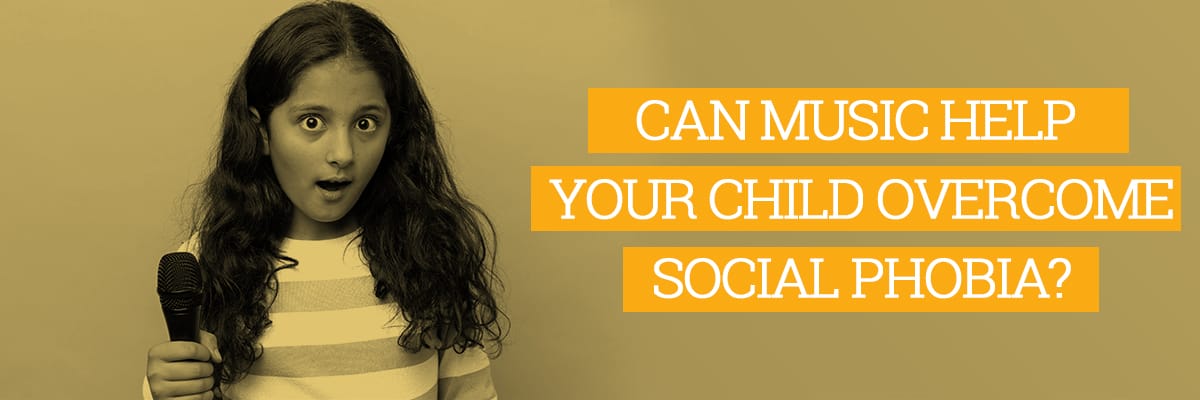
Can music help your child overcome social phobia ?
Is your child shy around people? Do you have to make a lot of effort to take your child on outings?
You Are Not Alone!
It is worrisome to see your child having a difficult time making friends or expressing themselves in public. Every parent wants their child to mingle with their age group and enjoy their childhood well.
Many children fight hard to communicate with others due to shyness and lack of self-confidence. Social awkwardness in children is not that unusual. This is a problem that many parents face, and they use multiple tactics to encourage their kids to be more social. However, rather than compel kids to do what they don’t like, let the music be their social buddy.
Here is how music helps your child grow socially.
Music is a stress buster. Making music a part of your child's life naturally nurtures vital social-emotional skills like confidence, social skills, and socio-emotional intelligence. The simple practice of incorporating music lessons gives your child a chance to be the leader—and foster self-confidence.
Whether practicing their musical instruments alone at home or jamming with their peers, children learn to respect other people's thoughts and try to express themselves in the same manner. They learn the real meaning of teamwork and collaboration, which indeed helps them to work on their social skills. Music can help students express themselves and work through stress and anxiety during the school day. This adds to music education's social benefits. Music reveals aspects of our personalities.
Our identities can be communicated through what we play, create, and share with others. Music activates many senses in the brain, which improves thinking skills, social and emotional awareness, and interpersonal communication. Reading music can help with general reading comprehension. Children who take music lessons have a place to practice receiving and offering constructive criticism.
There are connections between music and the effect it has on the areas of the brain that help with self-reflection and motivation.
A sense of success and a confidence boost come from learning a difficult piece of music or giving a performance in front of an audience. Children will develop their confidence by being proud of their accomplishments, and this confidence will in turn help them improve their leadership abilities.
